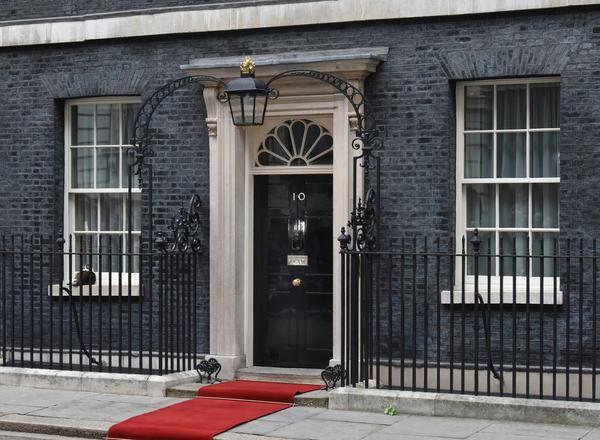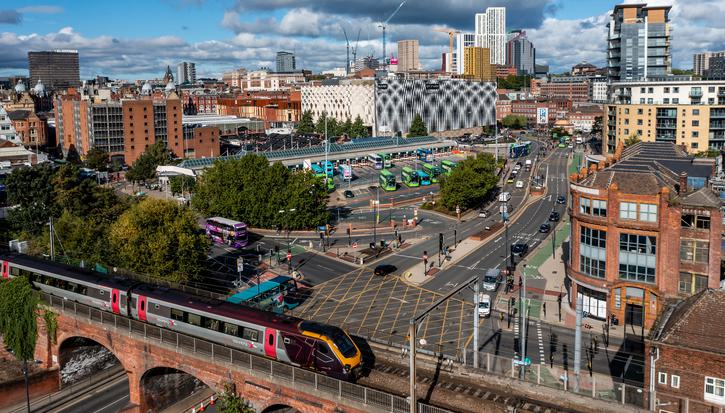
Government’s first 100 days: A regional perspective
Article
England is a tapestry of unique regions. There’s something special about each of them - with their own history, identity, strengths and challenges. Every one of these regions is key to delivering Labour’s ‘missions’, including economic growth.
There’s something deeply wrong about England’s regions too. Injustice runs through our economic, social and democratic fabric. Where you are born affects the kind of life you will live – and for how long.
100 days ago last weekend, a new UK government was elected. On health, jobs, disposable income and productivity, they have inherited the most divided country of any advanced economy. So when the BBC’s James Vincent put our IPPR North analysis to the new prime minister and asked if he would end the North/South divide, it was good to hear that he is “determined” to do so, and that “people with skin in the game make the best decisions”. But beyond warm words, what have the last 100 days signalled for regions?
Will this government let go of power?
Over-centralisation is a root cause of our country’s divides, and devolution is part of the antidote. This has been well evidenced.
An imperfect process of devolution has been rolled out over the last decade, which has resulted in mayors who are making a positive difference to the areas they represent. The door to devolution has been opened, although the journey needs improvement. Could this government enable a truly deep and irreversible shift of power to communities and institutions across England? Will this be the ‘Devolution Parliament’?
It could be. Within days of the election, the Prime Minister invited the UK’s Mayors into Downing Street. This signalled a remarkable change in tone in central-local relationships from one, frankly, of disrespect previously.
This shift is set to be backed by legislation, with an English Devolution Bill having been announced in the King’s Speech. It is expected to be brought to Parliament this session by deputy prime minister Angela Rayner, and will establish a new framework for devolution to broaden and deepen the powers available to local places. This is a good sign, and we are hopeful that a framework will be based on the principles of flexibility and subsidiarity. To get the framework right, the government will need, at a minimum, to co-produce it with local leaders. It’s handy therefore that devolution minister Jim McMahon is a former council leader. But to truly empower local people, involving citizens in the framework’s design would be a refreshing move.
The King’s Speech also announced the creation of a Council of the Nations and Regions, which met for the first time on Friday. Having helped to shape Gordon Brown’s Commission on the UK’s Future which recommended it, we know what a big deal it is for England’s regions to finally have a seat at the table. This is the way to begin to reset the relationship between the government and devolved and local leaders. Of course, these improved relationships will need to result in positive change for the country.
Will decisions be made of the North, by the North, for the North?
Beyond improved central–local relationships, intra-region collaboration matters too. Working together on shared interests like transport, skills, culture, nature, trade, energy and supply chains across the North are crucial.
Over IPPR North’s twenty years of life, we have called for northern leaders to work together on the design of a Great North Plan, and to make policy that is of the North, by the North, for the North. So it’s heartening to see northern leaders come together recently to form a new 'Great North’ partnership. To truly democratise the region, this collaboration should explore ways to involve citizens, hear, and act on their plans for the region.
A particular area that the North is united on is the delivery of the Northern Powerhouse Rail line between Hull and Liverpool. Culture secretary Lisa Nandy recently described Labour as “locked in” to rebalancing transport investment towards parts of the UK outside London, and a Labour commissioned report stated that Northern Powerhouse Rail should go ahead. To unlock growth in the North, the government will need to commit to - and deliver - this critical infrastructure project, as well as consider the need for alternative HS2 options.
All eyes will be on the Treasury to put the country’s money where the government’s mouth is on capital projects like these - and recent IPPR research shows how the fiscal framework could be reformed and increase headroom for investment by £57bn. There are plenty of infrastructure projects that need it, particularly in the North.
In her first Labour Party Conference speech as chancellor, Rachel Reeves recognised something that we at IPPR North have long argued. In promising to “power growth in every part of Britain” she acknowledged that regional growth is national growth. Next month the government will publish its industrial strategy, and we at IPPR North are taking forward work on the economic potential of regional growth, so watch this space.
We may be just 100 days into the new government’s tenure, but the country of five, ten, even fifty years’ time is being built now. The government heeding regional expertise is important. To realise its promised “decade of national renewal” the new government must now deliver on letting go of power, and delivering fair and adequate funding, for our regions to finally realise their full potential.
Rosie Lockwood is head of media and advocacy at IPPR North.
You might also like...

State of the North 2024: Charting the course for a decade of renewal
The North’s communities are ambitious for a better future, but face systemic and pronounced inequalities. Gaps in power, wealth, opportunity, and health result in shorter, sicker, less fulfilling lives.
The devolution parliament: Devolving power to England’s regions, towns and cities
For decades, Westminster government has enabled deep divisions to grow in this country: divisions between whole regions of England; divisions between cities, towns and villages; and divisions within places, between people.
Under the microscope: York and North Yorkshire’s devolution deal